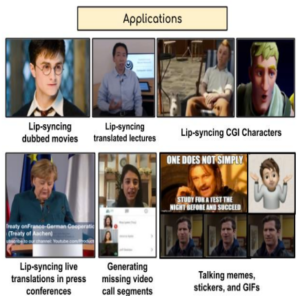The Climate Change Divide
January 21, 2021
As the world tries to hide from 2020 with an ignorance is bliss approach, one issue more prevalent than ever (and in no need for neglect) is Climate Change. The main issue concerning this potential climate collapse may not even be its future destruction, but the underlying, conflicting perceptions of the United States’ two main political parties. Humanity’s most pressing dilemma may never be effectively ameliorated if it remains stuck in this political chasm.
 Taking a look back at recent history, the divide between Climate Change believers and non-believers began in the 1990’s. According to a study published in the American Psychologist in 2011, in a ten year stretch between 1997 and 2007, the gap between Republican and Democrat belief grew 34%.
Taking a look back at recent history, the divide between Climate Change believers and non-believers began in the 1990’s. According to a study published in the American Psychologist in 2011, in a ten year stretch between 1997 and 2007, the gap between Republican and Democrat belief grew 34%.
Possible explanations for this divide could be a lack of trust in government, a conclusion from Smith and Mayer, published in Volume 49 of Global Environmental Change.
 As seen above, except for a rise following the terrorist attacks on 9/11, the consistent decline of government trust is shockingly apparent. Admittedly the graphs represent only a correlation, however the validity of the premise is compelling. As more and more distrust of the federal government lingers among US citizens, the extent to which those same institutions can enact environmentally friendly plans lessens.
As seen above, except for a rise following the terrorist attacks on 9/11, the consistent decline of government trust is shockingly apparent. Admittedly the graphs represent only a correlation, however the validity of the premise is compelling. As more and more distrust of the federal government lingers among US citizens, the extent to which those same institutions can enact environmentally friendly plans lessens.
Another possible explanation to the split of beliefs lends itself to the lack of direct impact among a large part of the US population. Encapsulating this problem in a simple phrase, Braeden Gazdag, Student at Clemson studying Environmental Resources mentioned the thought process of, “do I care? versus do I believe it?”
Gazdag believes that many people living in Middle America, far away from coastlines and severe natural disasters, may understand that Climate Change is an issue, just not for them. Valuing more pressing issues is completely understandable for those not experiencing the same rapid temperature increases and sea level rises. It represents the same selfish, no direct consequence actions all Americans partake in everyday, such as littering or telling white
lies.
Something as trivial as white lies may strike some as a bad example, though it remains an effective way to improve one’s life without having to worry about the consequences, just like rejecting the importance of Global Warming prevention above, let’s say, border protection.
Detailing all examples of why Climate Change polarization exists would far exhaust the capability for humans to willingly sit still and read through; therefore, focusing on the types of people steering the ship could engender greater insightfulness. “The greatest polarization on the issue of global warming and climate change is found along party lines, among the most informed and the most educated,” according to a research article titled Polarization of Climate Change Beliefs.
These people may have the highest scientific and technological knowledge among the public, and yet they represent the drivers of political division regarding Climate Change. Analyzing this proposition at first contradicts popular belief, however perfectly embodies how people interpret information.
Consider two people on different sides of the political aisle who both have a wealth of knowledge in meteorology. One could argue that shifts towards higher temperatures are abnormal and lead to the Earth’s destruction, whereas the other would argue that it is normal and, in fact, representative of the history of Earth. Those with little knowledge of science or technology will seldom hold pronounced views on Climate Change.
When regarding the people making up the future of each political party, hope still remains in regards to curbing the warming of planet Earth. In a 2018 scientific study published by three professors at Texas A&M and Maryland University, “70 percent of adults (aged 18 to 34) worried about global warming while only 56 percent of adults (aged 55 and up) expressed the same concern.” The idea that republicans staunchly reject the ideas of Climate Change can also be proven incorrect considering the findings in the same study which found that a 13% increase in believability of Climate Change between young republicans and old republicans.
Will millennials be the crutch supporting the crippled world from going up in flames? Hopefully? 2021 should represent hope for everyone after witnessing how awful 2020 was. Recent memory suggests that people’s views become deeper entrenched rather than changing. It is vital for the planet’s survival to turn these beliefs from dangerous political rhetoric consisting of nonchalance and apathy to beliefs supporting legitimate scientific studies. It should be as simple as forming caveman-like realizations such as Climate Change equals ice caps melting equals tsunami equals home displacement equals ten other horrible effects. If only humans’ simplemindedness could make an appearance here.




































































